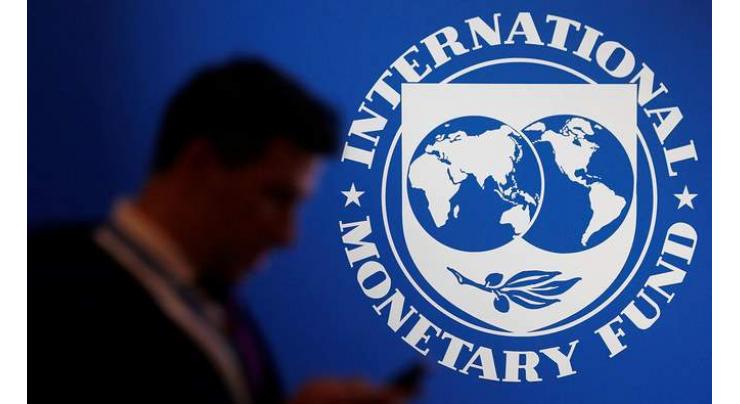
IMF Approves Sri Lanka's Bailout: President
Mohammad Ali (@ChaudhryMAli88) Published March 20, 2023 | 11:53 PM

Sri Lanka's request for a $2.9-billion bailout was approved by the IMF on Monday, the cash-strapped South Asian nation's President Ranil Wickremesinghe announced
Colombo, (UrduPoint / Pakistan Point News - 20th Mar, 2023 ) :Sri Lanka's request for a $2.9-billion bailout was approved by the IMF on Monday, the cash-strapped South Asian nation's President Ranil Wickremesinghe announced.
"We are pleased that the IMF Executive board approved our program, enabling Sri Lanka to access up to $7.0 billion in funding from the IMF and International financial institutions," he said.
A spokesman for Wickremesinghe told AFP in Colombo that he was informed of the much-awaited Executive Board's decision before the Washington-based lender was due to make a formal announcement.
"I express my gratitude to the IMF and our international partners for their support as we look to get the economy back on track for the long term through prudent fiscal management and our ambitious reform agenda," Wickremesinghe said.
The government has already doubled taxes, increased energy tariffs threefold and slashed subsidies in an effort to meet the preconditions of the IMF bailout.
The austerity measures have sparked widespread protests and led to strikes that crippled the health and logistics sectors last week.Wickremesinghe has said he had no alternative but to go with an IMF programme.
The economic crisis since late 2021 led to mass protests which saw the toppling of Wickremesinghe's predecessor, Gotabaya Rajapaksa, in July.
The former president fled the country and resigned three months after the country defaulted on its $46 billion external debt when it run out of cash to finance even the most essential imports.
Earlier in the day, Wickremesinghe's office said he was seeking a 10-year moratorium on Sri Lanka's foreign debt as the country was out of foreign reserves to service its loans.
Sri Lanka's economy shrank by a record 7.8 percent last year as it grappled with its worst foreign exchange crisis since independence from Britain in 1948.
Related Topics
Recent Stories

Earthquake jolts Karachi

Sindh minister orders operation after attack on police in Ghotki

TikTok to fight US ban law in courts

Anger among Ukrainians in Poland as Kyiv halts passport renewals

Police book youngster for abusing student for one year

British-Pakistani firm unveils $35 million luxury apartments for overseas Pakist ..

Watford hire Cleverley as permanent boss

Police arrest 23 suspects, recover stolen money, phones

Colorful cultural festival concludes at NUML

Immunization awareness week kicks off in Balochistan

Teenage girl arrested after stabbing at Welsh school

Ministers visit Aziz Bhatti Shaheed Hospital following roof collapse incident
More Stories From Business
-

British-Pakistani firm unveils $35 million luxury apartments for overseas Pakistanis in Islamabad
9 minutes ago -

European stocks lose momentum after global rally
28 minutes ago -

New pulses varieties imperative to cater domestic food requirements: Dr Khalid Hasan
2 hours ago -

CEO KP-EZDMC meets CRBC officials
2 hours ago -

Pakistan among nine poor countries that produces 90 percent cigarettes for world
2 hours ago -

Chief Minister Gilgit Baltistan Haji Gulbar Khan calls on Minister for Privatisation
3 hours ago
-

Germany nudges up growth forecast, ailing economy at 'turning point'
3 hours ago -

Revised UAF budget recommended
3 hours ago -

IDEA, TEVTA organizes Job Fair for youth
3 hours ago -

Massive financial, administrative scam unearthed at SCCI
3 hours ago -

FCCI welcomes Iranian president's visit
3 hours ago -

Germany nudges up growth forecast, ailing economy at 'turning point'
4 hours ago

















